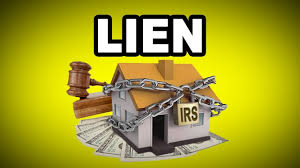

When you borrow a loan to buy an asset, such as a car or a house, the financial institution will place a lien on the asset. Simply put, if you buy a car on a loan, the bank from whom you acquired the money will grant you a lien on the vehicle. But what does this lien entail? To put it simply, it gives your lender the legal authority to seize the asset for which you obtained the loan if you fail to return the loan amount within the specified time period. The term lien has a significant impact on the financial world and should be understood. To have a thorough understanding of this phrase and its significance, we will go over the fundamentals of how it works and the many sorts of liens.
What does Lien mean?
A lien is the creditor’s claim on the thing that was used as security to borrow money. A lien can be put in place by a creditor’s judgment or a court order. Lenders or creditors are legally allowed to take the asset if the borrower doesn’t meet the rules of the obligation, like paying back the loan.
Even though interest rates are high, businesses may need collateral and liens in order to get loans, but only if they can provide the security. A lien makes sure that an underlying duty will be met, like paying back a loan. In the event that the debt is not paid back, the creditor has the right to take the collateral and sell it to get back the money they were given.
What does a Lien do?
When someone borrows money, there is always a chance that they won’t be able to pay it back on time or at all. People think that the idea of a lien is a great way to avoid this. They can take and sell the collateral assets or property that is the subject of the lien without the lien holder’s or the borrower’s permission. This is called a lien. A floating lien is one that is put on goods or any other property that is not fixed down.
Liens are usually optional and agreed upon, like a mortgage lien on a house. But there are also statutory liens that are not agreed upon. This is when the creditor or lender takes legal action against the user because they haven’t paid back the loan. Once this kind of judicial action is taken, a lien can be put on property and bank accounts, among other things.
As another way to let people know that someone has a stake in the land or asset, some liens are also filed with the government. A public record of a lien lets people know that an asset or property is subject to a lien. If they want to buy that asset or property, the lien must first be released, because the asset or property cannot be sold with the lien on it. There is information here that will help anyone who wants to buy something to learn about its financial history before they decide to buy it.
Types of Liens
There are many different holders of liens and types of liens. Businesses of a smaller scale, governments, and financial organizations all have the ability to impose either a general lien or a specialized claim on a property. Below is a list of several frequent specific liens that are mentioned:
- A tax lien
When referring to statutory liens, which are liens that are established by legislation rather than through a contract, there are various different sorts. Since the government frequently imposes taxes on the properties of taxpayers who have fallen behind on their payments, statutory liens are frequently utilized in taxation liens. In addition, tax liens make it difficult for the taxpayer to sell the property and gain credit for the purchase of the property.
- Lien for a Judgement
A judgement lien can be of assistance to creditors in the event of a non-payment by allowing the creditors to liquidate the assets of the debtor in order to get payment. Assets that are the subject of lawsuits are subject to judgments that are handed down by the courts. In layman’s terms, a court order grants creditors the authority to seize the property of a debtor in the event that the debtor fails to satisfy their contractual commitment.
- The Lien on Real Estate
Liens on real estate can be placed automatically in certain situations, such as those that are the outcome of mortgages. For the purpose of foreclosing on a property and selling it, a real estate lien may be utilized in the event that a contract is not met. Liens on real estate are a sort of legal remedy that can be utilized in the event that a contract is not fulfilled. As a consequence of obtaining a loan from a financial institution, a mortgage lien is imposed on a piece of property.
- The Mechanic’s Lien
When contractors are not paid for their services associated with real estate, a mechanic’s lien is attached to the property. In the event that a contractor is unable to collect from the debtor, a judgement might be obtained that would enable the lienholder to sell assets. This would allow the lienholder to fulfill its commitment.
- Attorney’s Lien
This is a reference to the right of a lawyer to keep real estate belonging to a client until the client has paid for the legal services that were rendered. Business records, official paperwork, or money that has been granted by a court could all fall under this category. According to either common law or state law, attorneys have the legal right to a lien.





